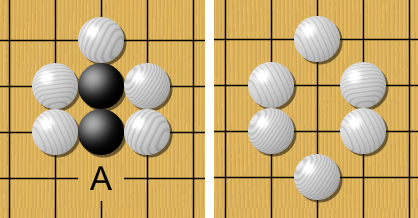Or maybe not. Malcolm Gladwell has just written a contrarian article, arguing that whilst the inherently weak ties in social networks have the power to spread ideas, they can change very little. His argument is that revolutions require serious commitment, and that spreading the word is not the same as getting involved. And I agree.
Mass movements aim to use the power of social proof to win over uncommitted minds, by demonstrating that "we" are more numerous, and more passionate than "them". This can be very effective in a democracy, where winning over a majority of the electorate will award power to your cause via the ballot box. But what if you're challenging a much more powerful, deeply entrenched, and potentially violent establishment - like the theocratic dictatorship of Iran?
In the summer of 2009, there was a lot of wishing thinking about Iran's "Twitter Revolution". The "Green" national consciousness movement, so the theory went, was growing contagiously, sidestepping state media controls and winning the hearts and minds of decent Iranians one tweet at a time. Sadly, this proved to be a total myth.
The problem was, whilst the #iranelection tweets proved very effective at spreading the message of discontent, most of the audience wasn't actually in Iran, and so was powerless to affect events. Inside Iran, a study of archived tweets suggests that Twitter was primarily used to propagate news, rather than recruiting and galvanising strategically important individuals.
The difference between bonding and bridging is a pet subject of mine. Twitter is a bridging network of weak ties, whilst Facebook networks combine a few strong bonds with a much larger number of weak ties. Revolutions, however, require the steadfastness of the very strongest of bonds - where you know your fellow activists personally, and trust them with your life (in the case of Iran, literally).
Gladwell's argument is that if you’re taking on a powerful and organized establishment activists need to arrange themselves into a hierarchy of ultra-strong bonds - which will maintain morale, keep discipline and allow the movement to act strategically. There is another factor though, which I was surprised he didn't mention, which concerns how change actually happens.
In 1989, revolutions swept through Eastern Europe. In each case, the revolution was preceded by popular protests, which grew progressively in size and militancy. The difference between Europe in 1989 and Iran in 2009 is that the army, sensing the popular mood, came out on the side of the demonstrators. Once the public knew the state's ability to suppress the movement violently was over, revolution was inevitable.
The lesson to draw from these successful, relatively bloodless (pre-Internet) revolutions is that fermenting a revolution requires swinging the key influencers behind your cause. These individuals are not journalists, or university professors, authors or movie stars - but the army lieutenants and police captains that give the orders to cadres of troops and paramilitary police. It is absurd to think that such individuals will be watching screens, ready to be swayed by a barrage of tweets. They'll be on the streets marshalling roadblocks, motivated by the fear of lethal retribution if their part of the line fails.
 |
| Place stone at A to capture black |
Fortunately, most of us will never need to risk our lives challenging a despotic regime, but the same principles apply to any intransigent opponent, (albeit with far lower stakes). For instance, how can a loosely assembled group of fans force out the disastrously inept current owners of Liverpool football club? Certainly not by tweeting, petitions or protest marches.
The lesson is to effect change, you need to find some way to win over the key influencers - in this case the banks who own the debt used to buy the club, and those who might be tempted to refinance it. You need to convince them that the incumbent owners are leveraged-buyout chancers and second-rate businessmen, and offer them an alternative they'll view as a better investment.
So, if you know anyone at the RBS's Bad Debt division, please give them a nudge. As for the rest of us, we'll just have to continue shouting our protests.
And cross our fingers.
|
|





